Steph W. from SEOPressor


...help you check your website and tell you exactly how to rank higher?


80
score %
SEO Score

Found us from search engine?
We rank high, you can too.
SEOPressor helps you to optimize your on-page SEO for higher & improved search ranking.
By allysa on August 23, 2016

Whether you’re an SEO beginner or someone who’s been involved in Search Engine Optimization (SEO) for years, there’s always something new to learn about the things you need to know about SEO.
After all, SEO is a rapidly-changing field. It changes so fast that it can sometimes be downright hard to keep up. Since SEO piggybacks on the established search engines (mostly Google), whenever they change how they create search results, SEO must necessarily change as a result.
Unfortunately, this means that articles about SEO and how it works quickly fall out of date. Information from just a couple years ago can be completely misleading today, or even damage your search engine rankings rather than enhancing them.
In just the last few years, we’ve seen many major changes from Google in how they handle searches, including:

Introduced in 2011 and continually revised, Panda seeks to find and promote the most trustworthy and authoritative sites, and is particularly intended to downgrade content farms and “spammy” blog sources.

Beginning in 2012, Google started taking a hard look at the inbound links to a website, tying ranking placement in part to the reputation of those linking to that website. This also completely wrecked the value of link circles.
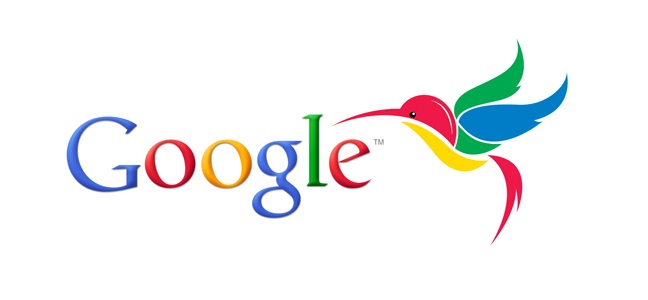
In 2013, Google almost completely overhauled their search engine itself. It now prioritizes heuristic parsing of natural-language queries, and radically de-emphasized use of keywords alone.

Confirmed in 2015, RankBrain is a machine-learning system with the capability to guess at the meanings of never-before-seen search queries. It may also use fuzzy logic to find webpages relevant to queries without a specific text match. We don’t know for certain; Google has been very tight-lipped about RankBrain specifics.
If you want a short summary of Google’s goals, it is simply that they wish to provide the best and most accurate possible results to every user search query. Google cares about the experience of their own everyday users far ahead of any other concern, because Google knows that SEO marketers will adapt to whatever changes are made.
They have to.
So, we wanted to present an overview for anyone involved in SEO who may not have kept up with recent changes. If you’d like to have a step-by-step beginner’s guide to SEO, you can read up on my series about SEO for beginners.
It’s true that Hummingbird greatly decreased Google’s reliance on keywords alone, but that doesn’t mean keywords are worthless. They’re still among the most important factors, but they’re no longer the most important component of search ranking.
However, there is almost no point in trying to target keywords that are only a couple words long, also called short-tailed keywords. Due to years of battles over these keywords, nearly all of them have already been well-established by either the top brands in their fields or by reference materials such as the Wikipedia or Dictionary.com.
For example, here’s what you’ll get if you only search “dog food”:

Pretty much all the top results are for major retailers such as PetsAtHome, PetCo and PetSmart. Such sites are nearly unassailable.
On the other hand, if you search for “organic dog food for greyhound puppies”, you’ll see:

Most of the results are from much smaller websites, blogs, and retailers.
The latter query, called a long-tailed keyword, has two big benefits to SEO. First, it’s far harder for the big brands and long-established websites to lay claim to them. Second, they’re the sort of queries a well-qualified lead will be making. Only someone who knows almost nothing about dogs would search solely for “dog food.”
People are making very specific queries that match their very specific needs, so you should likewise seek to target them with your SEO.
Someone reading the above point might be thinking “Oh no! Now I have to be targeting dozens of long-tailed keywords?!?”
But, in fact, you do not.
In most cases, being well-ranked for just a few keywords is all that’s needed for successful SEO and pulling in as many leads as you want. Speaking personally, we’re generally only targeting three long-tailed keywords at a time, and it’s completely sufficient for our needs.
After all, there’s a diminishing returns issue here. If you’re receiving more inbound leads than you can deal with, you’re not actually benefiting from them.
So we’d suggest spending some time with keyword research tools, especially Google Keyword Planner. It is one great research tool built in.
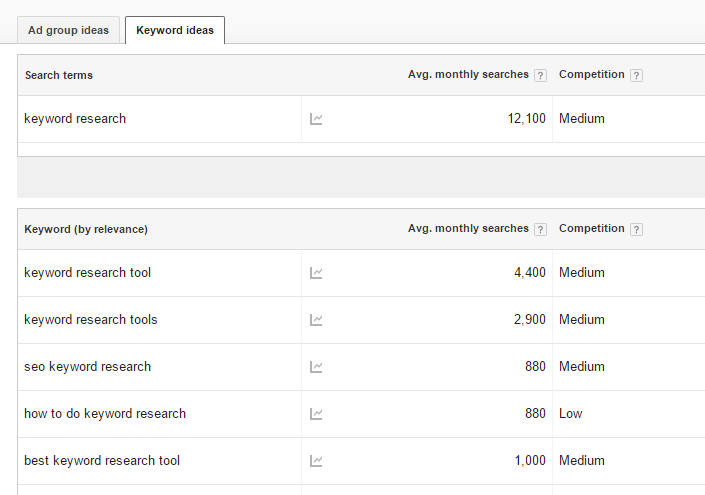
Keyword Planner by Google AdWords is a free tool that can help you to look for more keyword ideas and analyze the performance.
There are also other keyword research techniques to get your website ranked. Remember to always look for a handful of keywords that are relevant to your business and strike a balance between being frequently-used but not too frequently. Those will serve you well as initial targets.
As alluded to above, any major keyword or SEO decisions should be backed by research. SEO is extremely competitive, and very often, the success or failure of a particular keyword campaign will largely depend on how smart one’s initial research was.
If you need a place to start your research, BuzzSumo is an excellent option.

Likewise, continually evaluate the performance of your blogs and their keywords. Don’t be afraid to update or revise an older blog to bring it into line with modern standards. In fact, that can often give it a substantial SEO boost. Google seems to like it when websites update their content periodically.
For a good on-page SEO analysis and analytics tool, try SEOPressor Connect.
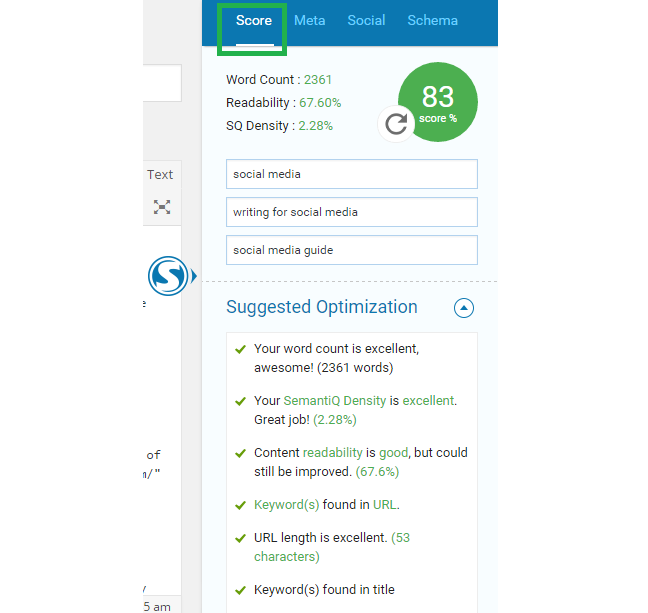
SEOPressor is like a checklist for us to analyze the steps that we’ve overlooked to improve our on-page SEO.
up-to-date list of SEO tools
Along with your keyword research, you should also be spending some time following trends and looking into the newest technologies.
There’s obvious a bit of guesswork and prognostication involved here, but basically, those who can spot something that will be big in 3 – 12 months and get there early will reap huge rewards.
For example (here’s a free tip) as of writing, it’s looking like Accelerated Mobile Pages is going to be big going forward. As the name suggests, AMP is a set of procedures for creating mobile-focused webpages that load extremely quickly and with minimum bandwidth use.
https://youtu.be/WrpkFROqR0Q
This is crucial for mobile users, especially those on tight data caps. Plus, Google is now actively giving ranking benefits to mobile sites which take these factors into consideration, given that mobile searches are now more common than desktop-based searching.
So, embracing AMP early could give you significant boosts to your mobile SEO.
From next-generation webpage creation techniques to the potential next big social media sites, keep a weather eye on the trends. As long as costs are low, it’s usually going to be worth experimenting with emerging technologies and websites for the sake of trying to be an early adopter.
Another factor of increasing importance to Google is geotargeting – delivering results that are relevant to where a searcher is. Again, this is due to the ever-increasing dominance of mobile searching. This can either be on very large scales, or very small.
On the small end of the scale, local SEO is actually huge.

Every day, more people are searching for products and services while on the road, looking for retailers which are nearby, or even along their commute route.
Brick-and-mortar businesses looking to draw in foot traffic can benefit greatly from having webpages that place a strong emphasis on particular areas (such as cities, or even particular neighborhoods) and have lots of geographic data on-site.
On the other hand, SEO can be global as well. If you are willing and able to serve a worldwide market, start including content targeting countries or languages in particular. Having country-specific pages translated into local languages will boost your relevant rankings significantly.
Don’t neglect the maze of other services Google provides, which can also be great sources of SEO juice! These include:
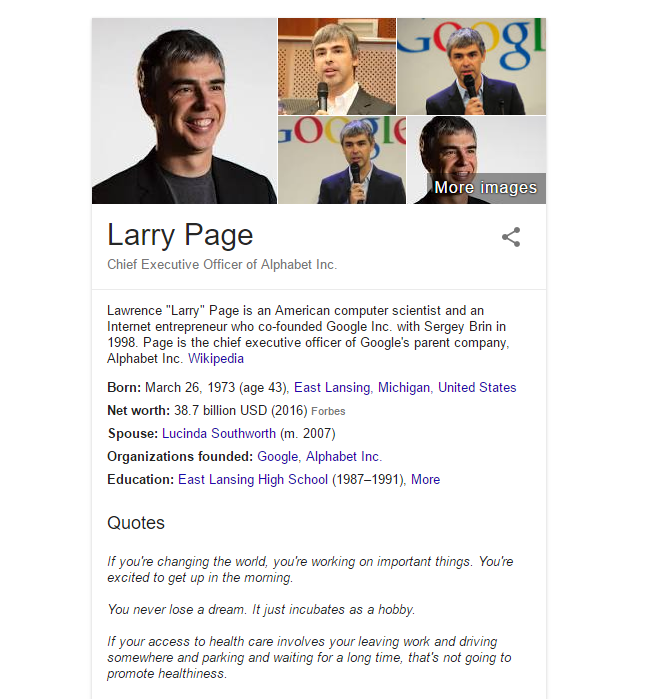
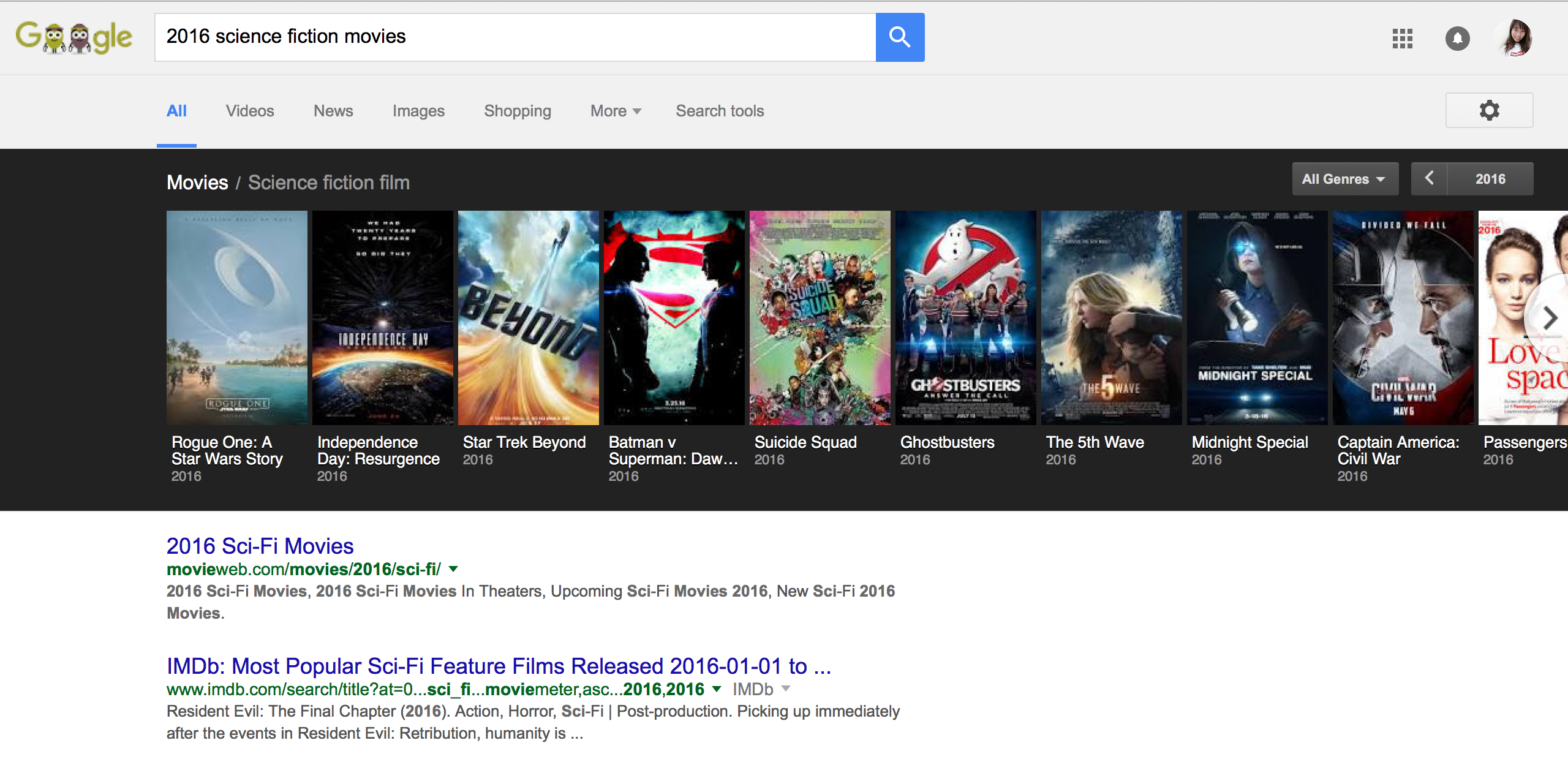
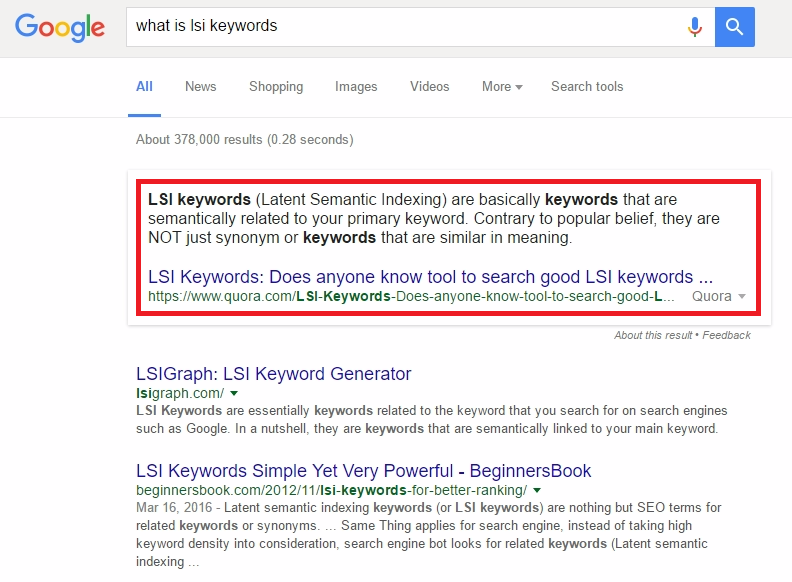
Getting onto the most prominent of these requires a lot of work, and excellent authority rankings, but a website that is successful will receive huge visibility boosts since these are extremely eye-catching.
Finally, even though Google is very much the 800lb Gorilla in the room (accounting for roughly 2/3 of all organic searches), remember there are other search options you can leverage as well.
Bing is the obvious alternative, and it takes most of the remaining 1/3 of searches.

Bing is particularly valued for its image search, so it can be a good target for highly visual websites.
Likewise, as we mentioned above, a strong YouTube presence can have huge benefits, since it’s technically the second most-searched website online.
Finally, don’t forget Amazon. It’s the starting point for 44% of product searches. An Amazon page will only supplement –not compete– with your other sales channels.
So those are the 7 things you need to know about SEO. In short, it’s vital to always keep up with new trends in SEO! As quickly as the search market can change, you could be missing out on a lot of SEO opportunities if you don’t periodically update your methods with the latest techniques.
Is there anything else that you’d like to share with us about SEO? Do leave a comment down below and let us know!
Related posts:
Updated: 14 July 2025


Save thousands of dollars (it’s 100x cheaper)

Zero risk of Google penalty (it’s Google-approved)

Boost your rankings (proven by case studies)
Rank High With This Link Strategy
Precise, Simplified, Fast Internal Linking.
